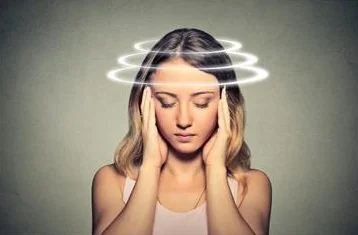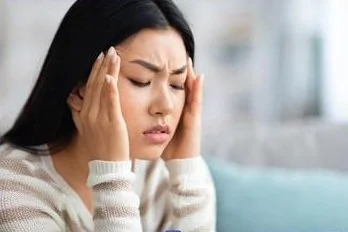Acupuncture
Acupuncture and Sciatica
🔶Sciatica often involves inflammation or compression of the sciatic nerve (commonly from a herniated disc, muscle spasm, or spinal misalignment). Acupuncture can help sciatica by targeting both the underlying cause of nerve irritation and the body’s pain-regulation mechanisms. While results can vary from person to person, many studies and clinical experiences suggest that acupuncture provides relief through several biological and neurological pathways.
🔶Acupuncture reduces Nerve Inflammation and Muscle Tension
🔶Improves Blood Flow and Circulation
🔶Modulates Pain Signaling in the Nervous System
🔶Supports Long-Term Healing and Function
Acupuncture and High Blood Pressure
🔶For High blood pressure, acupuncture may help in a few ways:
🔶Relaxes your body – It can calm the nervous system, which helps your heart rate slow down and your blood vessels relax. This can lower your blood pressure.
🔶Reduces stress – Stress is a big cause of high blood pressure. Acupuncture can help you feel more relaxed and less anxious, which may lower your blood pressure naturally.
🔶Improves blood flow – Some studies suggest that acupuncture can improve circulation and help the body control blood pressure better.
🔶Balances body systems – In Chinese medicine, high blood pressure is seen as an imbalance. Acupuncture helps the body return to balance, which may support healthy blood pressure.
Acupuncture and Tinnitus
🔶Tinnitus is when you hear ringing, buzzing, or other sounds in your ears that aren’t caused by an outside noise. It’s often linked to problems in the ear, stress, or poor blood flow.
🔶Acupuncture may help tinnitus in few ways:
Improves blood flow – Better blood circulation to the ears can help reduce the ringing.
🔶Relaxes the body – Acupuncture can lower stress and anxiety, which often make tinnitus worse.
🔶Balances energy (Qi) – In Chinese medicine, tinnitus is sometimes seen as a sign that your body’s energy is out of balance. Acupuncture aims to fix that.
🔶Affects the nervous system – It may help calm the nerves connected to hearing and reduce the “noise” the brain is picking up.
Acupuncture and Vertigo
🔶Vertigo often happens when your inner ear or brain isn’t getting the right signals about balance. Acupuncture may help with vertigo by improving blood flow, reducing stress, and calming the nervous system.
🔶Better blood flow to the inner ear and brain: Acupuncture may increase circulation, to inner ear and brain, helping these areas work properly.
🔶Relaxing Tension: Stress and tight muscles can make vertigo worse. Acupuncture can relax muscles in the neck and shoulders, which may reduce pressure on nerves and improve balance.
🔶Balancing Nerve Signals: The needles stimulate specific points that may help “reset” how your brain and inner ear communicate, reducing dizziness.
🔶Reducing Inflammation: If inflammation is part of the problem (like in inner ear disorders), acupuncture may help calm it down.
Acupuncture and Perimenopausal and Menopausal Symptoms
🔶What’s Happening During Menopause?
As you get closer to menopause, your hormone levels (like estrogen and progesterone) start to change. This can cause uncomfortable symptoms like
🔶Hot Flushes
🔶Night sweats
🔶Mood swings
🔶Sleep problems
🔶Anxiety
🔶Fatigue
🔶Acupuncture may help perimenopause and menopausal symptoms by
🔶Helping balance hormones: Acupuncture may influence the part of your brain (the hypothalamus and pituitary gland) that controls hormones. This might help smooth out some of the hormone ups and downs that cause hot flashes or mood changes.
🔶Reduces stress and anxiety: It helps your body release natural “feel-good” chemicals like endorphins, which can calm the nervous system, reduce anxiety, and improve sleep.
🔶Improves sleep: By calming your mind and body, acupuncture may help you fall asleep faster and stay asleep longer—a big deal during menopause.
🔶Lowers hot flashes and night sweats: Some studies show acupuncture can reduce how often and how intense hot flushes by helping regulate body temperature and calming the nervous system.
🔶Boosts energy and mood: Regular treatments may help ease fatigue, irritability, and even mild depression by improving circulation and balancing your system.
Acupuncture and Insomnia
🔶Acupuncture may help with insomnia by calming the mind and improving your body’s natural sleep rhythm.
🔶Helps you relax: Stress and anxiety are common reasons people can’t sleep. Acupuncture encourages your body to release feel-good chemicals (like endorphins) and reduce stress hormones, which helps you feel calmer.
🔶Balances your body’s systems: According to traditional Chinese medicine, insomnia often happens when your body’s energy is “out of balance.” Acupuncture aims to restore balance so your body can rest naturally.
🔶Improves blood flow and nerve function: By improving circulation and reducing tension, acupuncture can make it easier for your nervous system to shift into “sleep mode.”
🔶Supports natural sleep hormones: Some research suggests acupuncture may help regulate melatonin (the hormone that controls sleep), making it easier to fall asleep and stay asleep.
Acupuncture and Anxiety and Stress
🔶How acupuncture can help:
🔶How anxiety and stress affect your bodywhen you’re stressed or anxious, your body goes into “fight or flight” mode. This can cause: racing heart, trouble sleeping, muscle tension and feeling overwhelmed your nervous system gets stuck in high-alert mode.
Here’s how acupuncture may reduce anxiety and stress:
🔶Calms the nervous system: Acupuncture helps switch your body from “fight or flight” to “rest and relax” mode. You feel more at ease.
🔶Releases feel-good chemicals: It can trigger your body to release natural painkillers and mood boosters like endorphins and serotonin.
🔶Improves sleep: Better sleep can reduce anxiety. Acupuncture may help you fall asleep more easily and sleep deeper.
🔶Reduces physical tension: It relaxes tight muscles and reduces physical signs of stress (like headaches or jaw clenching).
🔶Balances energy (Qi): In traditional Chinese medicine, anxiety is thought to be linked to blocked or imbalanced energy. Acupuncture helps restore the flow of Qi.
Acupuncture and Headaches/Migraines
🔶Acupuncture can help with headaches and migraines by reducing pain and preventing attacks.
🔶Relieves pain naturally: Acupuncture triggers the release of endorphins (your body’s natural painkillers), which can ease headache pain.
🔶Improves blood flow: Migraines and tension headaches are often linked to poor blood circulation. Acupuncture improves blood flow to the head and neck, reducing pain and pressure.
🔶Calms the nervous system: It helps relax the nervous system, reducing stress and tension—common migraine triggers.
🔶Reduces inflammation: Some headaches come from inflammation in blood vessels or nerves; acupuncture may help calm this down.
🔶Prevents future attacks: Regular acupuncture sessions can reduce the frequency and intensity of migraines over time.








